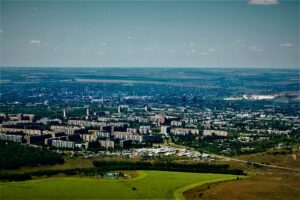I was in Bristol last week for the New Start seminar of local regenerators, and I came away with a sense that Bristol may be different from other places.
It is certainly different from Westminster or Whitehall. When I give seminars about local economics there, people come with neat suits or at least long sleeves. The audience in Bristol looked different; they were bronzed – I am prepared to accept that this might be because it was in July – but they almost without exception had either short sleeves or their sleeves rolled up.
It gave the impression of immense practicality, and that may be significant.
I thought of this a few days later, when the Guardian’s economics correspondent Paul Mason wrote an article which said this:
‘Almost unnoticed, in the niches and hollows of the market system, whole swaths of economic life are beginning to move to a different rhythm. Parallel currencies, time banks, co-operatives and self-managed spaces have proliferated, barely noticed by the economics profession, and often as a direct result of the shattering of the old structures in the post-2008 crisis…’
The article was taken from Mason’s book Postcapitalism, arguing that the sharing economy is about to become central to a whole new kind of economics, though the economics mainstream barely sees it at the moment – just as they failed to see the Industrial Revolution until it was on them, or the advent of modern capitalism.
‘If I am right,’ wrote Mason, ‘the logical focus for supporters of postcapitalism is to build alternatives within the system; to use governmental power in a radical and disruptive way; and to direct all actions towards the transition – not the defence of random elements of the old system.’
He warns against sidelining the Left with the politics of protest – ‘the privatisation of healthcare, anti-union laws, fracking – the list goes on’ – and to start building the postcapitalist world.
‘Bristol has become the epicentre of this small-scale revolution’
I don’t know if he is right. There are elements where he is missing some explanation – it isn’t clear what the motivation will be to produce anything in the postcapitalist world, as Mason sees it. On the other hand, he has to be right about the emerging challenge to the mainstream – and it is a highly practical, pragmatic one, being organised at the moment by thousands (probably no more than that) of people with shirtsleeves rolled up.
But if Bristol is the heart of it in the UK, the same movement seems to be emerging in New England with some advantages. They are less obviously of the left, more explicitly an alliance between radicals and conservative localists. They also have academic research on their side, and two pieces of research are particularly relevant to us over here:
In particular the Harvard Business Review research in 2010 which concluded that ‘more small firms means more jobs’.
‘Our research shows that regional economic growth is highly correlated with the presence of many small, entrepreneurial employers—not a few big ones’, it says.
In 2012 the journal Economic Development Quarterly showed this:
‘Economic growth models that control for other relevant factors reveal a positive relationship between density of locally owned firms and per capita income growth, but only for small (10-99 employees) firms, whereas the density of large (more than 500 workers) firms not owned locally has a negative effect.’
Where Mason is right is that the energy now going in to building local institutions, which can deal with small scale enterprise, is a potentially transformative phenomenon, and Bristol has become the epicentre of this small-scale revolution.
It isn’t the only place this energy is emerging in the UK, but it is somehow the beating heart of it. The question I found myself asking is: Why Bristol?
Stephen Clarke from the Bristol Pound also spoke at the seminar about the innovative history of Bristol. It was the city that grasped the opportunity of western expansion, which became the hub of railway expansion (and the slave trade too, it has to be said).
It was always a city of innovators and adventurers and maybe even pirates along with the slave traders. They pioneered trade with Spain and the Mediterranean. They sent Cabot to the New World.
Until the fifteenth century, Turkish slave ships lay in the Bristol Channel ready to seize the ships taking pilgrims to the Holy Land. Nobody was going to tackle the problem for them: they had to deal with it themselves.
This extraordinary energy in Bristol has been suppressed for more than a generation, as it has been in the other cities of the UK, by the extreme centralisation of power. But the cities are beginning to shake free of their iron cage, aware that – like the people of Bristol facing Turkish slavers – they will have to find their own solutions to an economic system stacked against them, as it is stacked against most of us.
Whether Paul Mason is right or wrong in detail, this movement will eventually come to dominate our economic futures, and Bristol is leading the way.














Leave a Reply